 I don’t usually get weird about birthdays, but a couple weeks before I turned 30 (on October 23), it hit me that – arbitrary or not, 30 is a pretty big milestone. Since then, I’ve been wondering what I’ve learned in my first 30 years of life. Here’s what I’ve come up with, 5 at a time!
I don’t usually get weird about birthdays, but a couple weeks before I turned 30 (on October 23), it hit me that – arbitrary or not, 30 is a pretty big milestone. Since then, I’ve been wondering what I’ve learned in my first 30 years of life. Here’s what I’ve come up with, 5 at a time!
1. The person who knows 1, knows none.
 This is true of languages, religions, culture and pretty much everything. If you don’t take time to get to know someone else in a real and deeply significant way, you won’t know yourself. We have less in common with God than we do with any person on the planet. If we don’t learn how to live in true community with Others, we won’t connect with God as fully as we could. We were designed to need each other.
This is true of languages, religions, culture and pretty much everything. If you don’t take time to get to know someone else in a real and deeply significant way, you won’t know yourself. We have less in common with God than we do with any person on the planet. If we don’t learn how to live in true community with Others, we won’t connect with God as fully as we could. We were designed to need each other.
2. You’ll get further this week developing a genuine interest in 2 other people than trying to get 2 other people interested in you.
 This is a quote from Tim Sanders. It’s true. Dale Carnegie also talks a lot about this in his classic book How to Win Friends and Influence People. My dad made me read that book when I was 16 and it’s still one of the best books I’ve ever read, one that has shaped me more than most. Learn the art of caring about others… it’s a skill you can develop. And it will change who you are. For the better. Because at the end of the day…
This is a quote from Tim Sanders. It’s true. Dale Carnegie also talks a lot about this in his classic book How to Win Friends and Influence People. My dad made me read that book when I was 16 and it’s still one of the best books I’ve ever read, one that has shaped me more than most. Learn the art of caring about others… it’s a skill you can develop. And it will change who you are. For the better. Because at the end of the day…
3. It really is more blessed to give than to receive.

We are created in the image of the God who is fundamentally a giver. We are hard-wired to be most fully ourselves when we’re giving. This is the direct opposite of what our culture teaches (and you’ll hear in any Economics class that there’s no such thing as a self-less gift). Giving makes us more human, more truly ourselves. You can learn this art (and if you want a good place to start, do yourself a favor and pick up Miroslav Volf’s Free of Charge).
4. If you can help it, don’t open your mouth unless you’re giving something to someone.
I’m not here yet, but this is where I want to get. I tend to be a very sarcastic person by nature, and I’m tired of making people feel like trash. I want to be a person who’s a constant source of encouragement and life to other people. I don’t want to feel good at someone else’s expense. It’s something I’m still working on.
5. You have to fight for good relationships.

Somehow, I think we all got the impression that if a relationship is right and good, it just comes naturally. Well, bad news… that’s a dirty lie. True life-giving relationships take a lot of work. We have to learn that Others are never going to be like us, no matter how much we try to change them. God revels in diversity, so we have to figure out how to live with Others.
And that takes work. In marriage, in friendship, in family, at work and church and even international politics (I suspect).
We’ve been fed the lie that we should surround ourselves with like-minded people and we’ve happily gobbled it up. Time to switch tables and find some new cuisine!
If you want a good place to start, try reading a book by a person you don’t like (or think you won’t) and forcing yourself to write down something positive for every negative thing you say.
That’s it for this week… next week’s all about Story. But for now, what do you think? Do you agree or disagree?
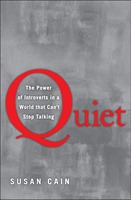 As most introverts do, growing up, Susan received implicit messages about the insufficiency of introverts. But the truth is, we need introverts. When introverts don’t be introverted, everyone loses.
As most introverts do, growing up, Susan received implicit messages about the insufficiency of introverts. But the truth is, we need introverts. When introverts don’t be introverted, everyone loses.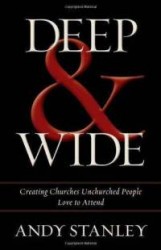
 11. Batman really is the best literary character.
11. Batman really is the best literary character. And that’s scary, because as soon as you have influence over another person, it’s possible (even likely) that you’re going to hurt him or her. None of us is perfect; we all try to remake the world in our own images. And that means we’re always at risk – always toeing the line between really engaging another person and colonizing him, remaking her to fit into our world.
And that’s scary, because as soon as you have influence over another person, it’s possible (even likely) that you’re going to hurt him or her. None of us is perfect; we all try to remake the world in our own images. And that means we’re always at risk – always toeing the line between really engaging another person and colonizing him, remaking her to fit into our world. Safe is easy. And easy is dangerous, because easy is comfortable. When we’re comfortable, we get complacent and we quit paying attention. We stop asking hard questions. We start to think we’re the king of our castles. Being in an uncomfortable space reminds us that we’re not in control. That the world is stranger than we like to remember. That other people really aren’t the way we want them to be. The uncomfortable spaces are a very good place to meet God.
Safe is easy. And easy is dangerous, because easy is comfortable. When we’re comfortable, we get complacent and we quit paying attention. We stop asking hard questions. We start to think we’re the king of our castles. Being in an uncomfortable space reminds us that we’re not in control. That the world is stranger than we like to remember. That other people really aren’t the way we want them to be. The uncomfortable spaces are a very good place to meet God. Leaders are readers. Read lots of stuff. Blogs, books, magazines. Read the best stuff in your area. Read fiction. Read bestsellers. Read classics. Read books you’re pretty sure you’re going to disagree with. Just read. Seriously. It’s a skill you can develop.
Leaders are readers. Read lots of stuff. Blogs, books, magazines. Read the best stuff in your area. Read fiction. Read bestsellers. Read classics. Read books you’re pretty sure you’re going to disagree with. Just read. Seriously. It’s a skill you can develop.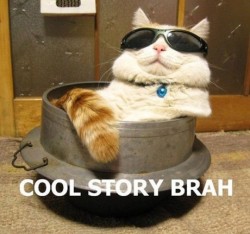
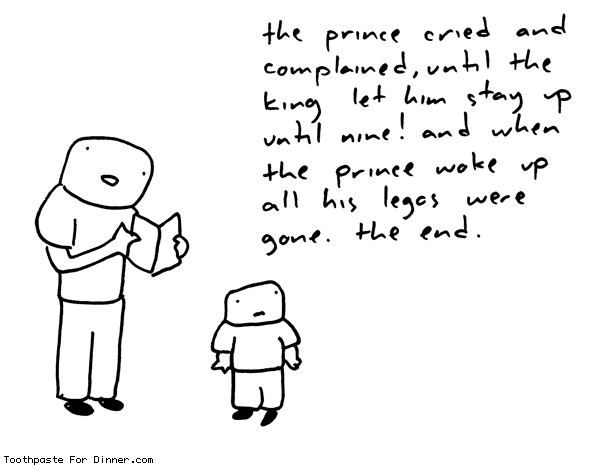
 I don’t usually get weird about birthdays, but a couple weeks before I turned 30 (on October 23), it hit me that – arbitrary or not, 30 is a pretty big milestone. Since then, I’ve been wondering what I’ve learned in my first 30 years of life. Here’s what I’ve come up with, 5 at a time!
I don’t usually get weird about birthdays, but a couple weeks before I turned 30 (on October 23), it hit me that – arbitrary or not, 30 is a pretty big milestone. Since then, I’ve been wondering what I’ve learned in my first 30 years of life. Here’s what I’ve come up with, 5 at a time!



 Clichés become cliché for a reason, and “Practice makes Perfect” is no different. I grew up playing baseball, and you could always tell the teams that practiced from those who didn’t. My team usually had brutal (to a 10-year-old) 2 hour practices that included such glamorous activities as running laps, playing catch and fielding ground-balls. Over and over and over. And over. But of course we became a better team for it. Activities that first required concentration and effort became second-nature. We gained more endurance, became a stronger, more focused team for it. This is the beauty of practice for a sports team.
Clichés become cliché for a reason, and “Practice makes Perfect” is no different. I grew up playing baseball, and you could always tell the teams that practiced from those who didn’t. My team usually had brutal (to a 10-year-old) 2 hour practices that included such glamorous activities as running laps, playing catch and fielding ground-balls. Over and over and over. And over. But of course we became a better team for it. Activities that first required concentration and effort became second-nature. We gained more endurance, became a stronger, more focused team for it. This is the beauty of practice for a sports team. awkward space in your message. Running through your material three to four times
awkward space in your message. Running through your material three to four times 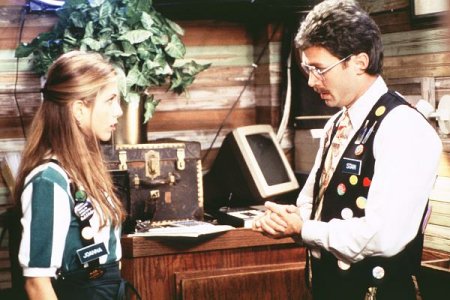 Last week, I wrote about using
Last week, I wrote about using